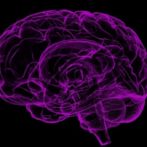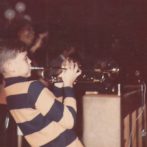Snapshots of Dementia: Scam Alert, Part 1
(Unsplash) “Turn it off,” I said, my voice shaking. “I just can’t watch that.” The YouTube video that caused me to speak to my daughter in such a direct way had a topic too familiar to all of us: dementia. As I recall, it involved two men who exposed scams, this one targeting senior adults who were living with dementia. The investigators were doing a great job of ferreting out those responsible and (I presume) helping bring them to justice. That wasn’t the problem, of course. The problem, for me, was the deliberate way they pointed their attacks toward someone LWD, easily confusing and misleading them. And the real problem—the reason I couldn’t watch anymore—was that this happened to our family too. More than two years before Tom’s official diagnosis with dementia, while the neurologist was still telling me he was fine, we experienced one of the worst seasons of our lives. We were already going through marriage counseling after he confessed some very inappropriate activity (not a physical affair). What should have been one of our happiest times, with one of our daughters getting married that summer, quickly become just the opposite. Tom was barely doing the required homework for our marriage counseling. In fact, he often seemed disinterested when we met (via Zoom, although the pandemic was a few years away) with our counselors from Pure Desire Ministries. The loneliness I often experience now while married to someone LWD is nowhere near as great as what I felt then. I cried nearly every day, sometimes sobbing for much of my forty-minute drive to and from work. Why did my husband no longer seem to care about our marriage? Over that summer and fall, at the same time as we were going through counseling, complete with accountability partners to whom Tom reported every week, he was giving away our money, several thousand dollars at a time. The first time, while out of town, he had money wired from our bank to share with a scammer. Later, he used credit to buy gift cards, also shared with a scammer. And here’s one of the worst parts: because he was the primary money manager, I had no idea any of this was happening. I had noticed his increasing struggles, and (at my insistence) Tom had a neurological workup including an MRI, but I wasn’t yet in relentless pursuit of a diagnosis. In fact, it took almost a year after that for me to connect the problems in his behavior and in our marriage to his dementia. Like many people, I thought of dementia as primarily a memory issue. Tom had some memory problems, but he also had many other behavioral...
Read More







